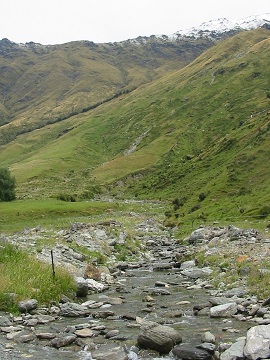STUDY GEOLOGICAL SCIENCE ONLINE
Geology is the study of the earth, the rocks, the materials from which the earth is made, the structure of those materials, and the processes which cause them to change over time. It is concerned with the structure of the earth at both the surface level and beneath the surface.
 COURSE STRUCTURE
COURSE STRUCTURE
There are 9 lessons in this course:
- Introduction
- Types of Rocks
- Structural Geology
- Types of Minerals
- Geobiology
- Geophysics
- Geochemistry
- Groundwater Hydrology
- Applied Geology
Learn Not only Theory, but Practical Applications of Geology
Mining
Knowing the geology of an area informs us about mining operations. It can help us determine not only what products might be extracted but also where and how they should be extracted, and what measures should be undertaken in order to alleviate risks in the process. The mining process from a geological perspective encompasses all aspects and phases of the mining process from initial prospecting to mine rehabilitation.
Engineering
The geology of an area impacts what can be built on the area. If ground is not stable, engineered construction (eg. pipelines, buildings, roads, bridges) which are built over them, are at risk. The field of applying geological methodology to engineering is termed as engineering geology. Engineering geology is the application of geological data, principles and techniques to the study of engineering. The purpose being to assure that geological factors regarding location, planning, design, construction, operation and maintenance of fixed works are recognised and accounted for in all engineering phases and aspects
Geological Surveys
A geological survey is a systematic investigation of the geology pertaining to a particular area with the primary purpose of creating a geological map/model and subsequently understanding the formation processes involved. Geological surveys form the basis of understanding the geology of an area or region as well as identifying significant deposits (i.e. ore bodies). They incorporate a number of techniques including extrusive surveys, intrusive methods as well as the use of geophysical techniques and processes. While some survey techniques might only be particular to a specific type study being conducted, most surveys will incorporate some form or use of all techniques to be discussed.
Water Management
Hydrogeologists are involved in solving some of the major challenges the world is currently facing, including sustainable water supply, food and energy production, environmental protection, and coping with climate change.
The study of groundwater hydrology can be rather complex. Groundwater does not always follow the surface topography. It follows pressure gradients - flowing from high pressure to low.
Groundwater hydrology focuses on determining:
- How water enters the ground (recharge)
- How groundwater moves within the Earth’s crust through aquifers
- How groundwater interacts with the surrounding soil and rock
Structural Geology
Structural geologists study geological structures to determine (or at least infer) changes; both on a small or large scale. They may be observing rock on a microscopic scale or could be making observations over tens or even hundreds of metres.
Structural geology is important in:
- Hydrocarbon and mineral exploration
- Regional geophysical and geochemical surveys aiming at identifying new mineralized provinces
- Interpretation of geophysical, geochemical, and geochronological data
- Guiding the mining process
- Geotechnical site assessment for bridges, dams, tunnels, nuclear reactors, waste disposals etc.
- Earthquake prevention and earthquake seismology
- Study of past and present mountain belts and sedimentary basins
COURSE AIMS
- Explain the nature and scope of geology and concepts that underpin the science of geology.
- Differentiate between rock types.
- Explain the scope, nature and application of structural geology in today’s world.
- Differentiate between different minerals.
- Explain the scope, nature and application of geophysics in today’s world.
- Explain the scope, nature and application of geobiology in today’s world.
- Explain the nature of chemical change that can occur in the geology of a site.
- Explain the nature and significance of groundwater on different sites.
- Explain different practical applications for a knowledge of geology.